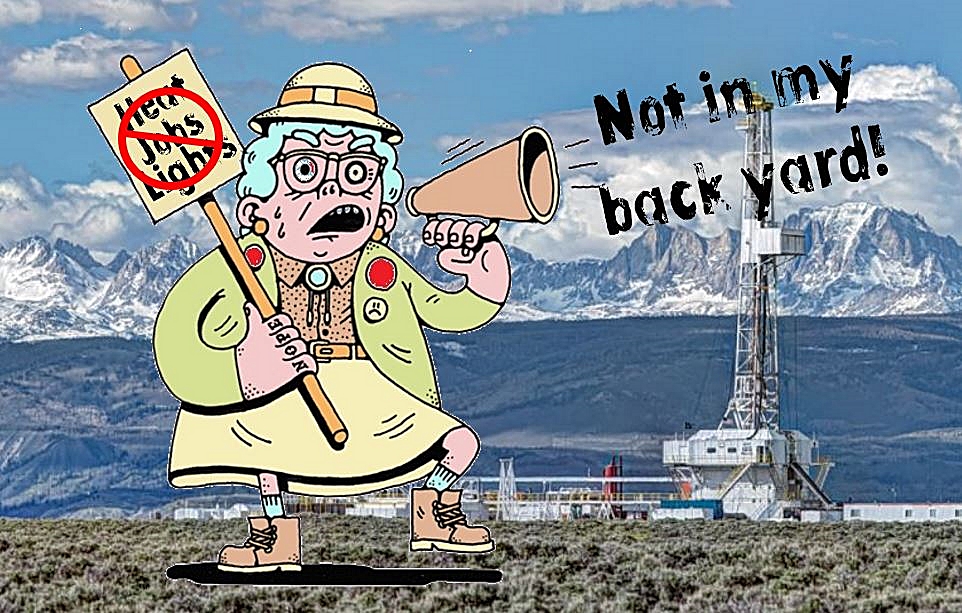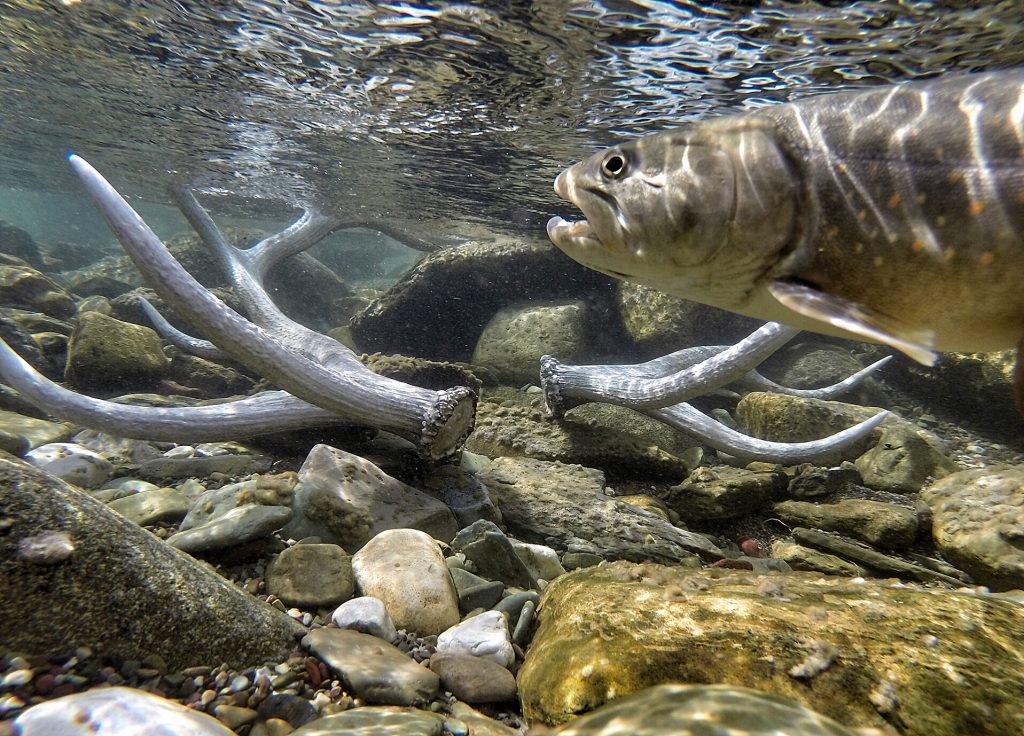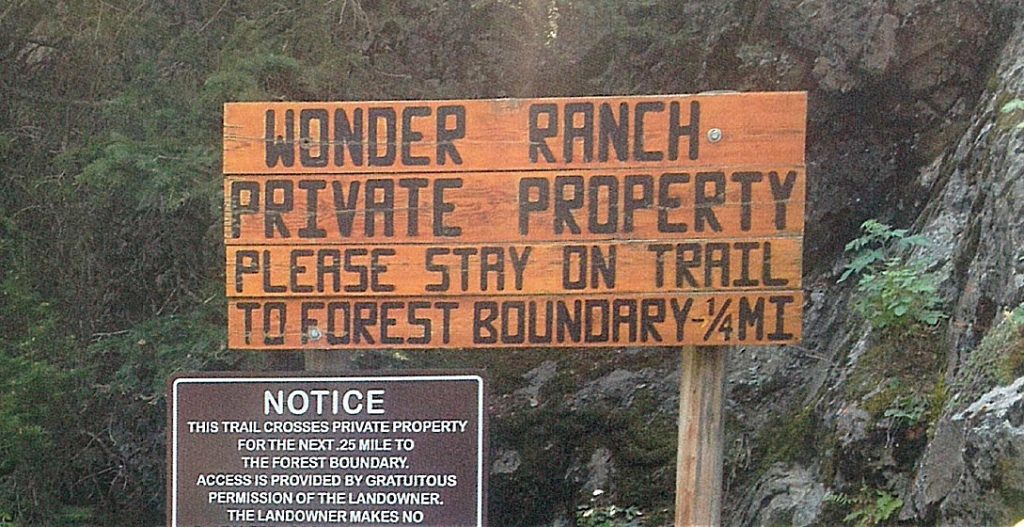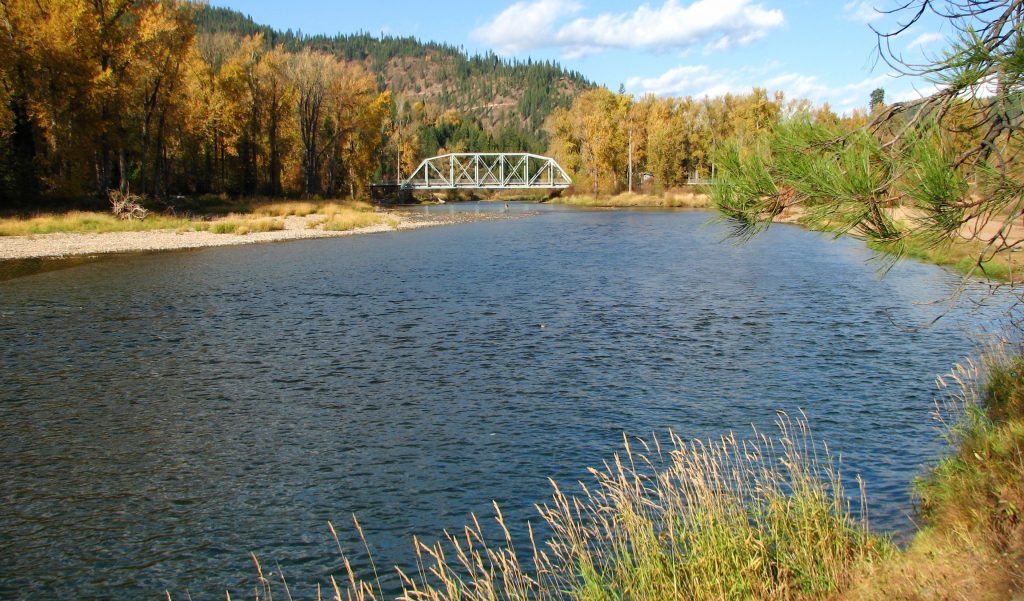“People in Nigeria,” he said, “go camping every day of their life, for their entire life.” Mbride smiled and continued, “only people in America have the luxury of sleeping on the ground for fun. And when asked about why he lacks passion for the 1st world pastime called “hiking,” his resonate chuckle resulted in a similar response: “In Nigeria we engage in hiking and ride bicycles out of necessity —not for fun.”
David Ludlam
Eco-snobbery reveals contradictions and false choices
Delta County is “Too Wild to Drill.” Activists who promote this brand of eco-elitism patronize moderate people. Such righteous eco-snobbery should be rejected and replaced with a more optimistic belief that energy, agriculture and recreation can exist together as pillars of the regional economy. By rejecting extreme all or none thinking, activists in the North Fork might come to see energy and agriculture produced together for the benefit of society, in a country, that unlike the rest of the world, manages such human endeavors under the rule of law.
Mbride is a man from Nigeria and is my distant cousin by marriage. With an infectious laugh and gregarious charm, Mbride radiates an infectious humility only exhibited by persons native to the material scarcity of the developing world. Mbride recently attended our family reunion camp-out near the North Fork Valley. Around the campfire he was asked, “Mbride, why do you hate camping?” His response, delivered with a playful but incredulous Nigerian accent silenced campfire discussion. “People in Nigeria,” he said, “go camping every day of their life, for their entire life.” Mbride smiled and continued, “only people in America have the luxury of sleeping on the ground for fun. And when asked about why he lacks passion for the 1st world pastime called “hiking,” his resonate chuckle resulted in a similar response: “In Nigeria we engage in hiking and ride bicycles out of necessity —not for fun.”
Eco-activists in Delta County who promulgate the slogan “Too Wild Too Drill” operate under a faulty assumption that tends to unify homogeneous enclaves of eco-elites. They use propane, natural gas, wind-turbines, rare-earth minerals, solar panels, fertilizers, clothing and medical supplies. They believe these materials are vital to humanity and should be mined, milled and produced for the benefit of society. But the eco-elite also believe energy and raw materials should be mined in Africa, or somewhere not near them.
So, is Delta County really “Too Wild to Drill” even when natural gas and propane production affects nearly every aspect of modern life in the area? Here is a punch in the nose to such inane sentiment.
Nearly 40 agricultural water projects in the North Fork Valley are funded with natural gas royalties from Colorado’s Water Conservation Board. Now that’s wild. Delta County Schools received more than $25 million in 2016 from natural gas royalties through the school equalization fund. Drilling deeper, according to state statistics, more than 1,100 Delta County families pay their energy bills using royalties from propane and natural gas production with money from Colorado’s low-income energy assistance program.
Natural gas royalties fund Colorado’s Species Conservation Trust Fund. Propane and natural gas production contribute to Colorado’s Agriculture Value Added Fund; the Aquatic Nuisance Mitigation Fund; the Colorado River Compact Committee; State Forestry Grants; Colorado’s Wildfire Risk Reduction Fund; and, the invasive Species Management Fund. And these programs all have active projects in Delta County. Paonia Reservoir received more than $4 million from the Colorado Parks and Wildlife Waterways Program that also receives natural gas royalties.
Delta County landowners receive natural gas royalties through Colorado’s State Forestry Grant Assistance funding wildfire risk while Hotchkiss, Paonia, Delta and Cedaredge are receiving direct royalty payments from propane production that helps fund roads, bridges, parks and conservation projects.
Faux enviro-intellectualism propagates cartoon slogans like, “Too Wild to Drill,” perpetuating a false choice. They say Delta County must choose energy production or they must embrace a dogmatic belief that Delta County is simply “too wild” to produce the very propane the community relies on for energy. But Delta County harbors a century old history of mining, logging, ranching, farming and drilling — all while sportsmen and women have recreated in harmony.
Mbride’s campfire wisdom reminded me that first world elites have their own narrow notion of what wild is. Recently, a Daily Sentinel columnist who opposes natural gas production in Delta County, recounted a shallow justification why he opposed Delta County energy development. In the same breath he acknowledged heating his home and business with propane but went on to say the heating fuel should be produced far away from his community — because the North Fork is “Too Wild.” But Natural gas produced in western Colorado under the rule of U.S. law and environmental regulations is a good and right thing. In the U.S we sleep on the ground for fun, we slide down mountains of snow on fiberglass boards just for kicks, and we sometimes forget the raw materials and energy that makes such frivolities possible. This summer Mbride reminded me why I’m passionate about representing the people who produce propane in Western Colorado. He also reminded me pulling back the curtains on eco-hypocrisy is a necessary and important part of my job.
If Delta County is too wild to produce natural gas, and the raw materials that underwrite modern life, then where should we turn, Nigeria? Or other places where “wild” is a harsh reality, not a convenience for the affluent?
David Ludlam is the executive director of West Slope Colorado Oil & Gas Association.
[paypal_donation_button]
Free Range Report
[wp_ad_camp_3] [wp_ad_camp_3]
[wp_ad_camp_2]




Very well said. I like the terms you introduced: eco-elitism and eco-snobbery. When are we going to accept that our livestyles, especially those who live in the cities, drive our need for resources. I wish we could see more photos of wells, both oil and natural gas after the drilling. The footprint is so small.
Excellent article and gets right to the heart of eco-elitsm and their snobbery. It’s all about them and to hell with the people who actually live there. This is exactly the progressive mindset that ruined Moab/Grand County Utah. No oil well or mine destroys the beauty and solitude of the wild places like industrial tourism.